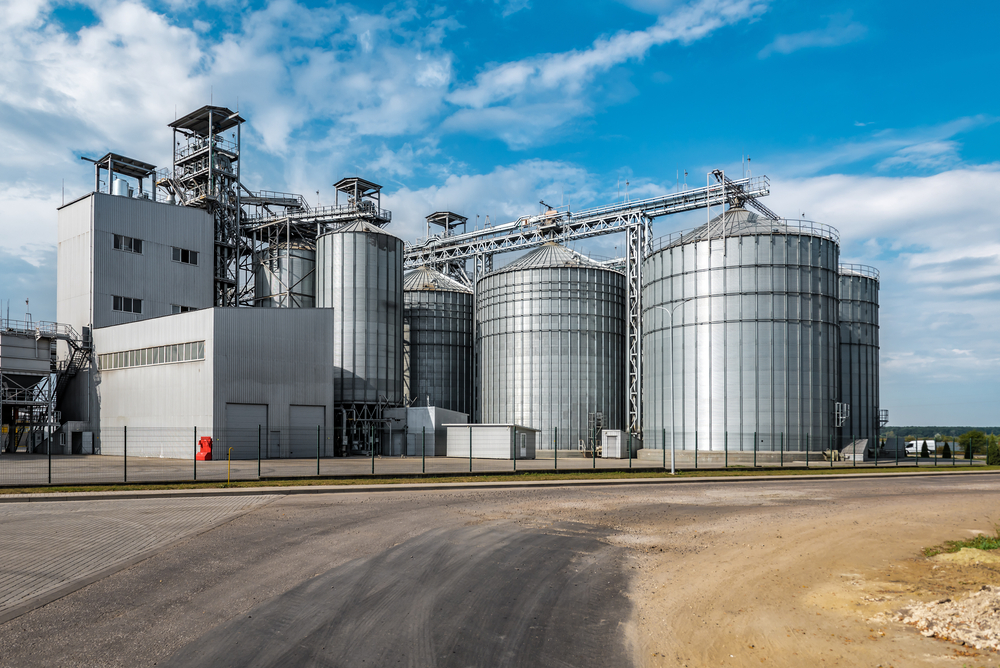The Occupational Safety and Health Administration (OSHA) cited feed and food processor Archer Daniels Midland (ADM) following the agency’s investigation into an explosion at ADM’s West Plant in Decatur, Illinois, that resulted in the hospitalization of three employees with burns and other injuries and extensive damage to the grain elevator, OSHA announced October 18.
The agency cited ADM for two willful, one serious, and one other-than-serious health and safety violation, proposing penalties totaling $324,796 in relation to the explosion at the West Plant.
Agency inspectors responding to the combustible corn germ dust explosion determined that the explosion suppression system on an indoor bucket elevator leg was nonfunctional and in a state of disrepair. Investigators found that the Decatur grain processing facility hadn’t conducted inspections and testing of the explosion suppression systems since late 2016.
OSHA also has an open inspection at ADM’s East Plant after another explosion and fire injured eight workers on September 10.
There were earlier incidents, inspections, and citations:
- On January 4, 2019, an explosion and deflagration propagation event caused equipment and structural damage in the East Wet Milling Corn Plant and outdoor truck unloading bucket elevator legs. OSHA issued a detailed Hazard Alert Letter to the company outlining concerns about the performance and documentation of equipment maintenance of explosion suppression and other systems.
- In April 2019, OSHA cited ADM for not inspecting and testing critical safety systems after a November 3, 2018, explosion at its East Campus caused extensive damage.
- As part of a formal settlement, the company agreed to conduct and document preventive maintenance on safety control equipment and to follow inspection procedures consistent with the manufacturer’s recommendations.
The agency also issued citations to the company on September 29 following its investigation of the April 11 death of a locomotive cab operator in a collision at ADM’s East Soy Plant. The agency cited the company with a violation of the General Duty Clause after determining that the company hadn’t ensured that crews positioned rail cars with sufficient clearance to prevent a collision. OSHA proposed penalties of $15,625.
“ADM knows the important role maintenance and testing plays in protecting the lives and health of their workers and their property from two previous explosions and yet failed to follow common industry practices and Occupational Safety and Health Administration standards to maintain these protective systems,” Edward Marshall, OSHA’s Peoria, Illinois, area office director, said in an agency statement.
Bronx contractor cited in JFK airport deaths
Two workers at a worksite at John F. Kennedy International Airport in Queens were attempting to remove soil from below a concrete slab located within a trench when the slab broke apart and collapsed, fatally crushing both workers. Their employer, Bronx water and sewer line construction contractor Triumph Construction Corp., was cited for 4 serious violations, with $59,153 in proposed penalties, OSHA announced October 16.
OSHA inspectors determined that Triumph Construction failed to:
- Support the concrete slab, exposing both employees to the danger of a collapse.
- Instruct employees on safe methods to remove the slab and provide supervision to ensure those methods were followed.
- Construct the excavation’s protective system based on designs in accordance with OSHA standards.
“Working in excavations is inherently dangerous. Demolition of existing structures must be carefully planned, and shoring systems must be built according to their design,” Kevin Sullivan, OSHA’s Long Island and Queens area office director, said in a statement.
“Employers are obligated to make a good faith effort to recognize, evaluate and control workplace hazards throughout the course of the work and as conditions change, which Triumph did not do.”
OSHA has an ongoing National Emphasis Program (NEP) to address trench and excavation collapses, and it announced plans last year to conduct 1,000 trench and excavation inspections nationwide following a spike in trench fatalities.

